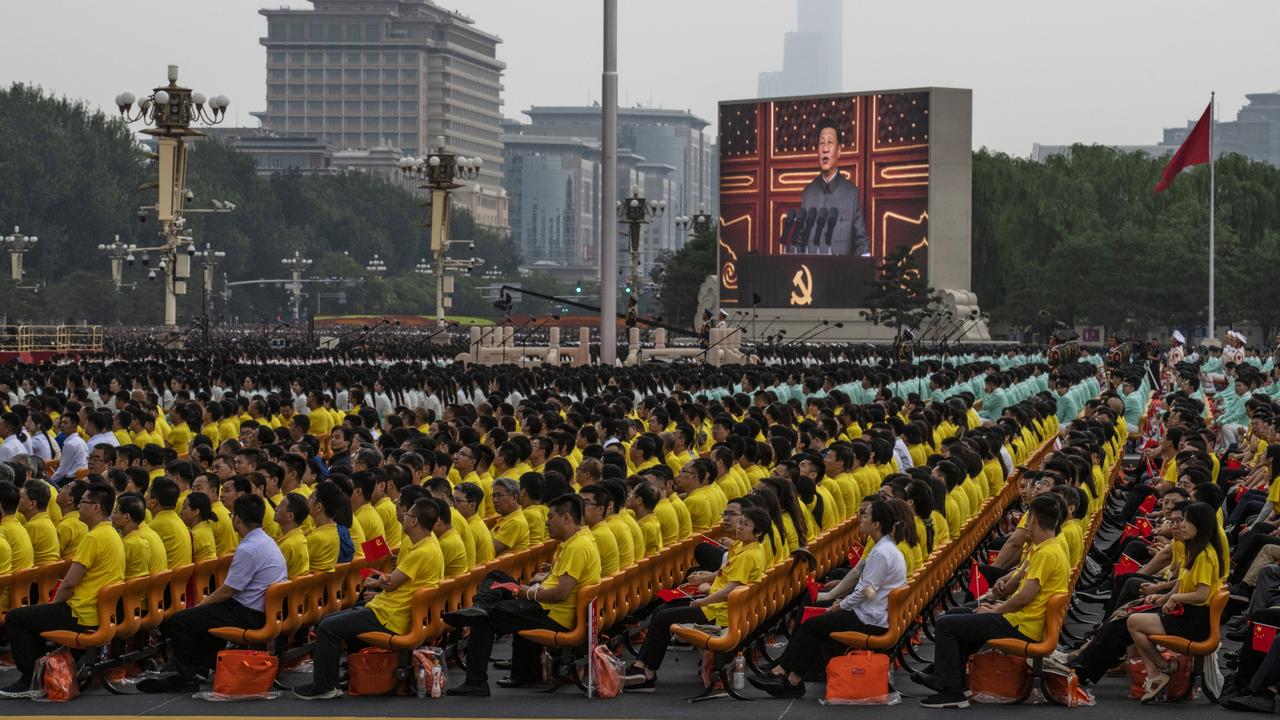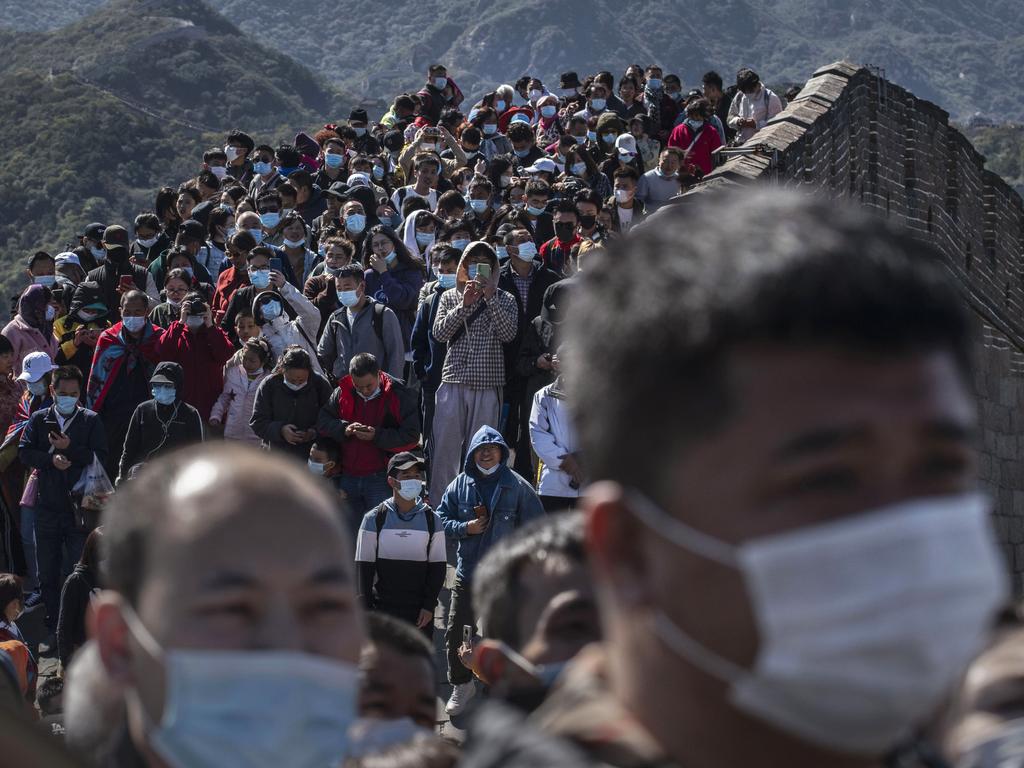Delayed by Covid chaos, global population reaches big milestone
The world’s population hit a historic milestone this week according to United Nations projections, with the China and India estimates helping tip humanity into a global total of eight billion

READING LEVEL: GREEN
Little baby Maya is only a few hours old, but she is already making history.
The world’s population hit a historic eight billion on Tuesday, according to United Nations* projections*, the same day proud parents Franziska and Chris Newman welcomed their newest family member at Epworth Freemasons hospital in Melbourne.

Born just before 8am, no one can know if Maya was the baby whose arrival triggered the historic milestone*.
But she’ll always be one-in-a-billion to her parents.
Mr Newman said mum and bub, who is the pair’s second child, were both doing well.
“She’s our first girl, so I’m sure she’ll rock our world a little,” he said.
“We’re very happy.”
The UN’s chief of population estimates and projection said the global population milestone came about a year later than expected because of Covid-19. The pandemic slowed global birthrates and killed millions of people.

The UN’s latest population report found population growth fell below one per cent in 2020, the lowest level since 1950.
There has been a trend of slowing population growth for decades amid declining fertility* rates.
It took 11 years for the population to grow from seven billion to eight billion, but the UN expects it to take 15 years to hit nine billion, in 2037, and another 22 years to pass before we hit 10 billion, in 2058.
It predicts Earth will hit a peak population of 10.4 billion people in the 2080s.

While the rate of population growth is slowing overall, it remains high in some countries, particularly poorer nations where education and opportunities for females lag behind developed countries.
High birthrates in these poorer nations and the fact people around the world are living longer, thanks to better medicine, healthcare and nutrition*, have seen Earth’s population increase rapidly since 1900.
The most populous regions are in Asia, with China and India each having more than 1.4 billion people.
India’s population is expected to surpass* China’s at some point next year.

TOP 5 COUNTRIES BY POPULATION
- China 1,452,576,592
- India 1,412,839,388
- United States of America 335,653,845
- Indonesia 280,536,349
- Pakistan 231,526,174
Australia’s population: 26,219,089
Source: Worldometer, as of November 15 2022, 5.50pm AEST
GLOSSARY
- United Nations: international organisation formed after WWII to grow political and economic co-operation among member countries to protect and promote world peace
- projections: estimates, forecasts, predictions
- milestone: important event in the development or history of something or in someone’s life
- fertility: quality or state of being fertile and able to reproduce
- nutrition: process of taking food into the body and absorbing the nutrients in those foods
- surpass: to go beyond in amount, extent or degree
EXTRA READING
World population to hit eight billion this year
World’s oldest person dies at 119
Census reveals changing shape of Australia
QUICK QUIZ
- The global population eight billion people milestone was delayed by what event?
- Population growth fell below what level in 2020, which was the lowest level since what year?
- How many years did it take for the population to grow from seven to eight billion?
- The UN predicts a peak population of how many people by what year?
- What are the world’s most populous regions and what population figure do they each exceed?
LISTEN TO THIS STORY
CLASSROOM ACTIVITIES
1. Design a card
Imagine that baby Maya was, in fact, the eight billionth baby! Design a special greeting card for Maya and her family.
Time: allow 25 minutes to complete this activity
Curriculum Links: English; Science; Geography; Visual Communication Design
2. Extension
Is the fact that the Earth’s population growth is slowing down a good thing or a bad thing? Write a list of reasons and examples that support your answer to this question.
Time: allow 20 minutes to complete this activity
Curriculum Links: English; Science; Geography
VCOP ACTIVITY
1. News: condensed
Identify the most important pieces of information in this article and write a condensed version of it using 50 words or less.
Draw a picture or diagram to support your condensed news story.
Time: allow 25 minutes to complete this activity
Curriculum Links: English; Science
2. Extension
Compare your condensed news story with a classmate. Did you both include the same information or are your stories quite different? Discuss your choices and then work together to create a final condensed version of the story that you both agree tells the important parts that a reader would need or want to know.
Time: allow 20 minutes to complete this activity
Curriculum Links: English

